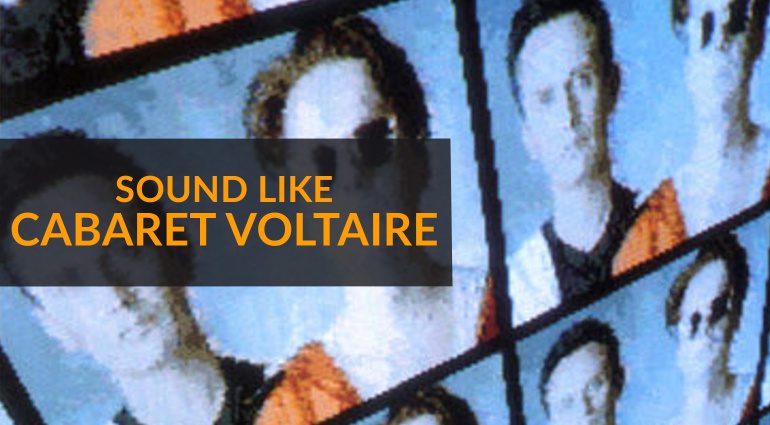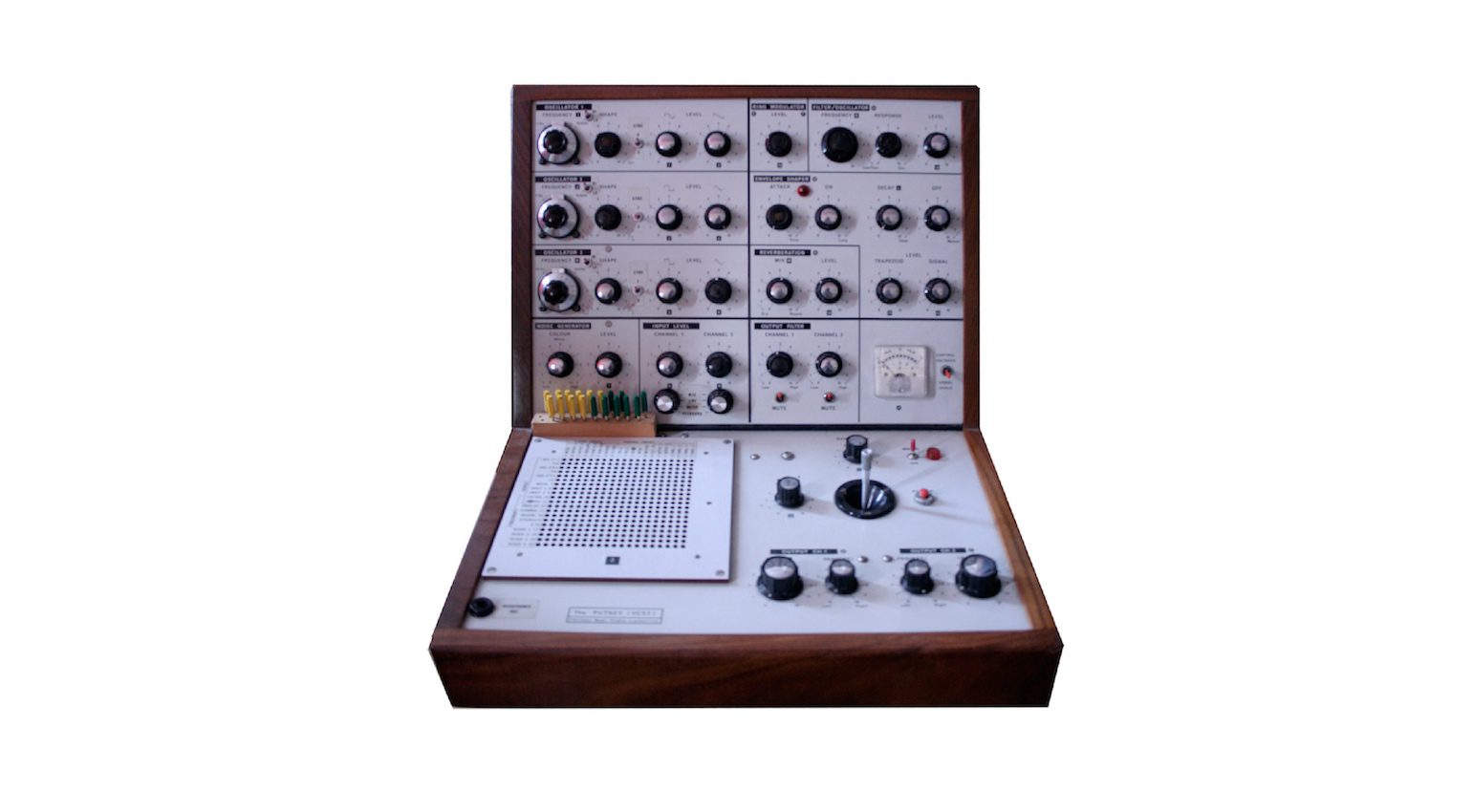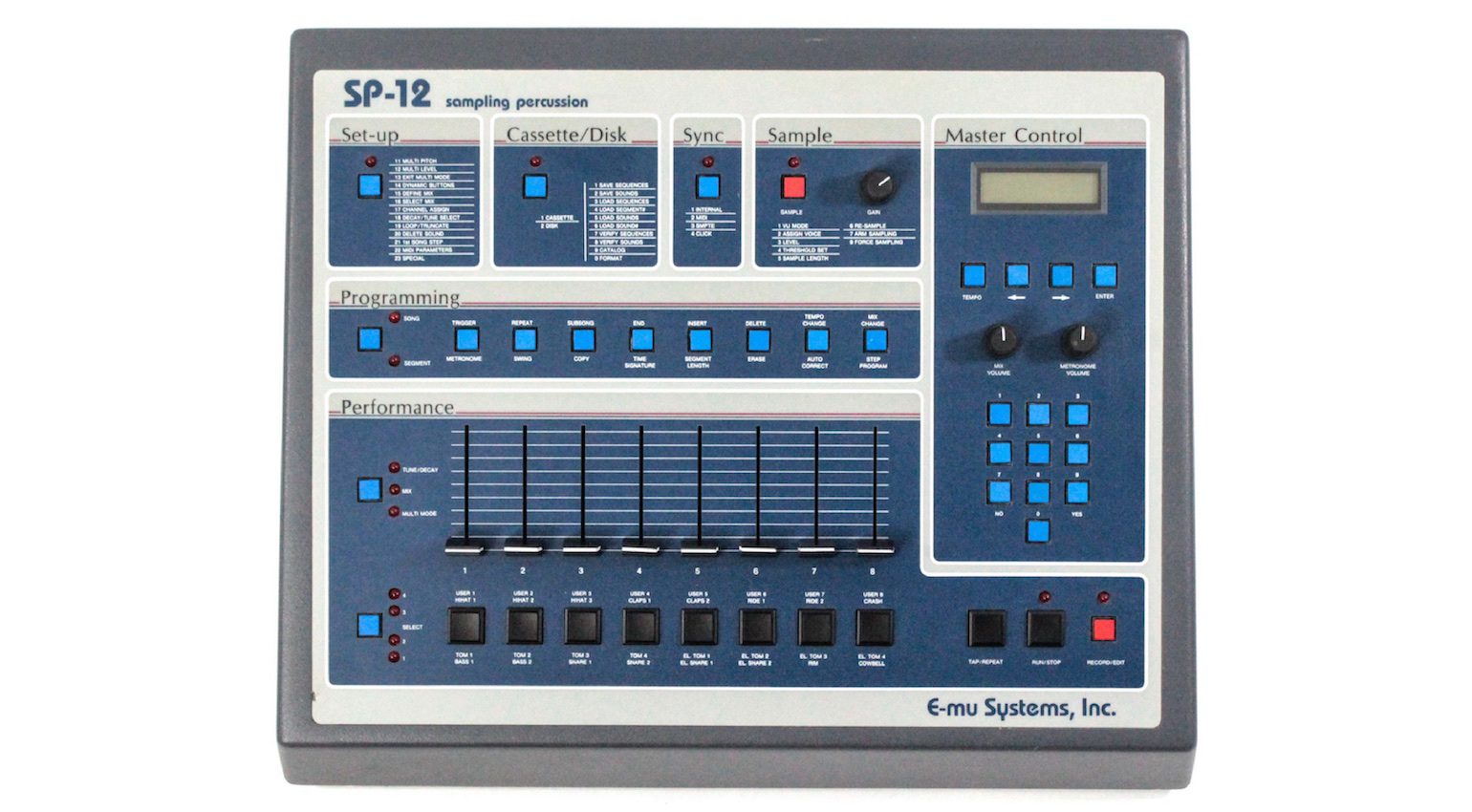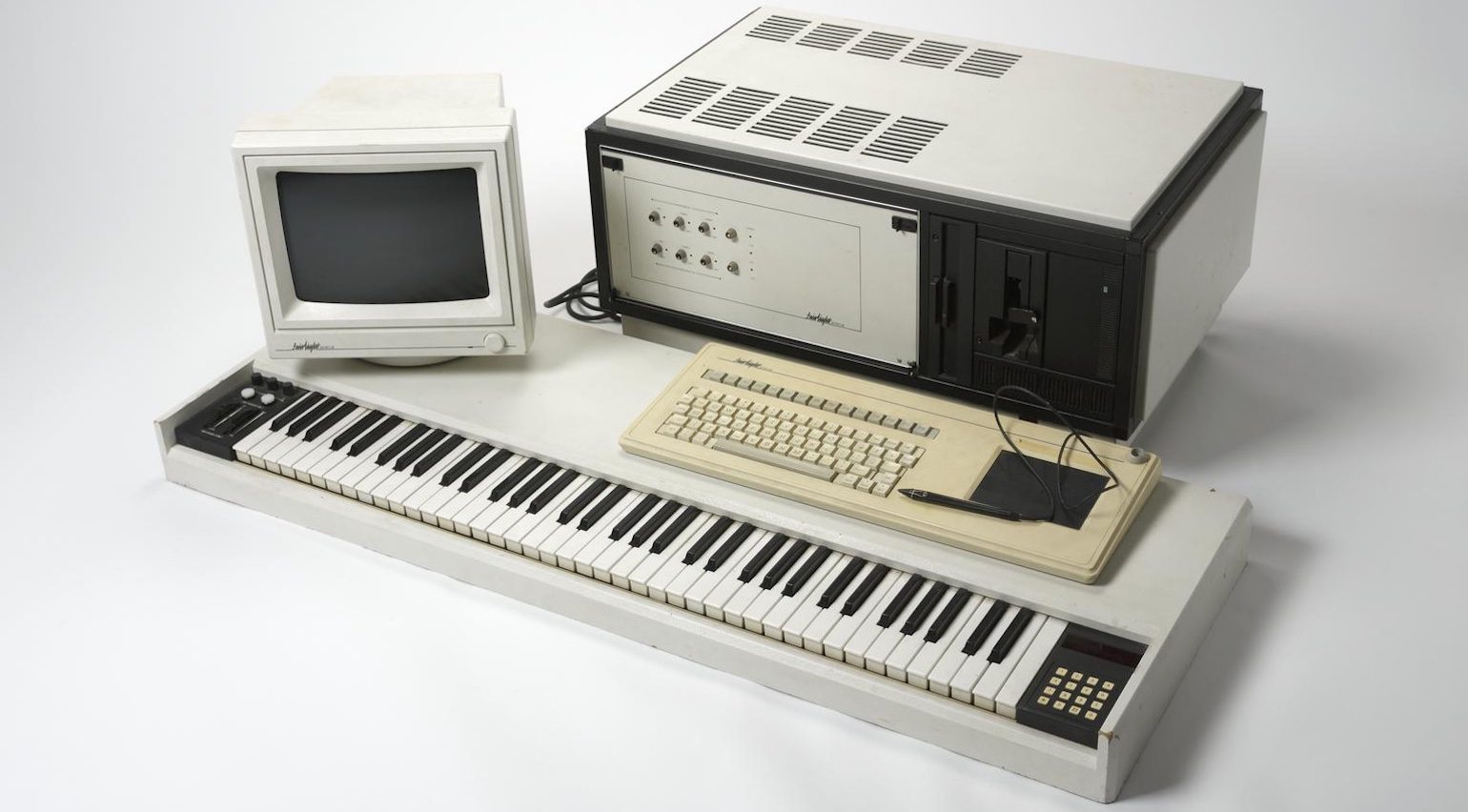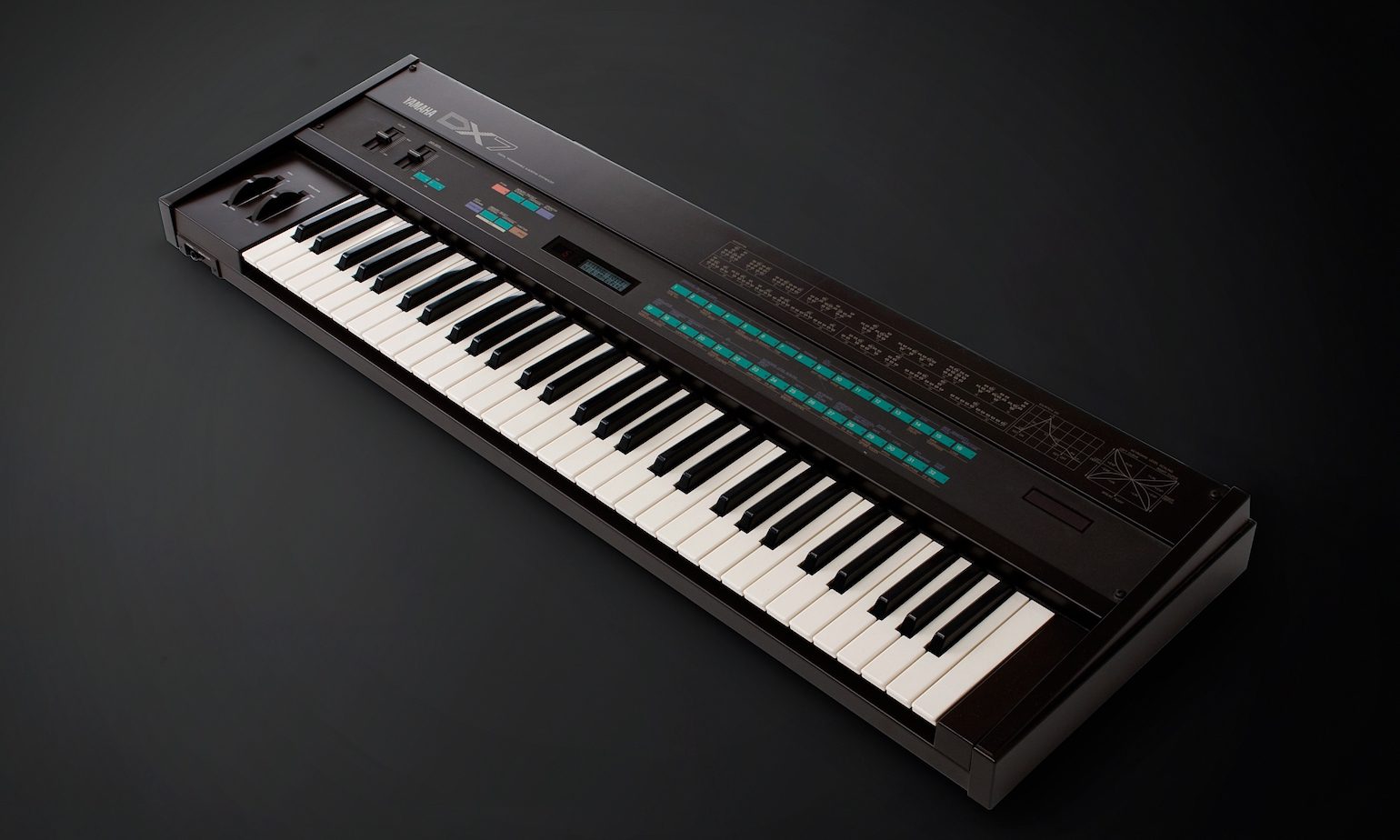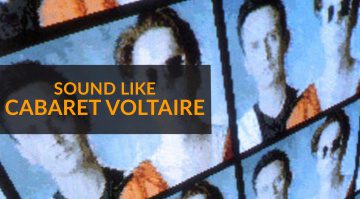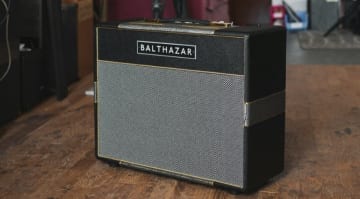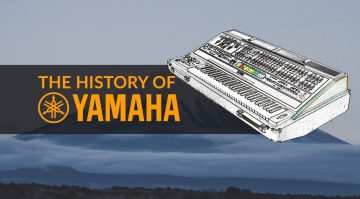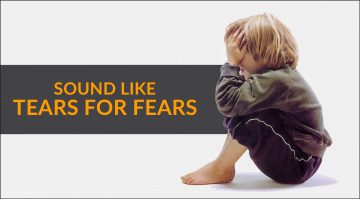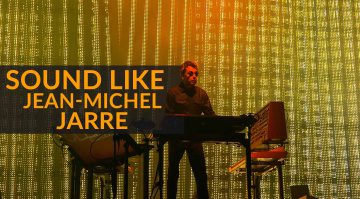Who’s Your Dada?: How To Sound Like Cabaret Voltaire
Sheffield outfit, Cabaret Voltaire evolved from obscurity to becoming one of their generation’s most influential electronic acts. We’re looking at the group’s history and some of the instruments they used to create their eccentric sound.
To the uninitiated listener, early Cabaret Voltaire may sound like the intermittent ramblings of some rather unhinged individuals. However, referring to their music as experimental would be an insult to its utter outrageousness, both then and now.
The trio of Stephen Mallinder, Richard H. Kirk, and Chris Watson began their journey in 1973. Seeking to create “music without instruments”, their interest in working tape loops and primitive DIY synthesizers was ahead of the curve.
Moreover, their approach to live performances consisted of Dadaist stunts and musings that went over the heads of many audiences. However, CV developed a cult following within the blossoming punk scene, often sharing the bill with Joy Division.
The Cabaret Voltaire Sound
It wasn’t until the early 1980s that CV would truly take off. The post-punk era proved to be the perfect launch pad for their outlandish, but rather dancefloor-friendly electronic collages.
Relentless drum machine grooves, minimalistic synth sequences, sample stabs, and vocals that almost sound like words spoken under breath became the hallmarks of the CV sound.
EMS VCS3
First introduced back in 1969, the VCS3 would inspire a generation of musicians, and Cabaret Voltaire was certainly among them. The unique architecture of EMS synthesizers had a creative appeal that aligned strongly with their music, and the Synthi A was also used both in studio and on stage.
Although monophonic, the VCS3 provides 3 oscillators, trapezoidal envelopes, and a unique patch-pin mod matrix to work with. This semi-modular flexibility was ahead of its time, and very impressive for such a compact synth.
This approach to synthesis is still available today in the form of the Erica Synths Syntrx, which is inspired by the EMS Synthi AKS.

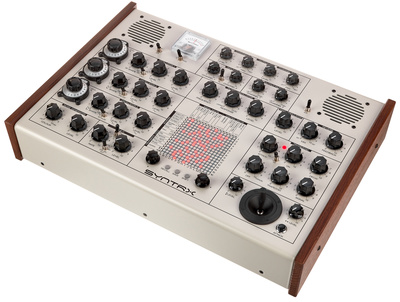
E-mu SP-12
The famous SP-12 sampling drum machine was first launched in 1985 and evolved the digital drum-machine concept laid out by the E-mu Drumulator. It provides eight-voice polyphony and the classic lo-fi 27.500 kHz, 12-bit sampling engine.
The meager 1.2 seconds of sample time could later be increased to 5 seconds with the TURBO upgrade. The SP-12 was used extensively during the creation of the eighth CV album, Code (1987), along with an E-mu Emax, a Roland TR-808, and a Yamaha SBX90 effects unit.
The SP-1200 has been reissued by Rossum Electronics, but you can also get some great vintage sampler sounds from the TAL-Drum plug-in for your DAW.
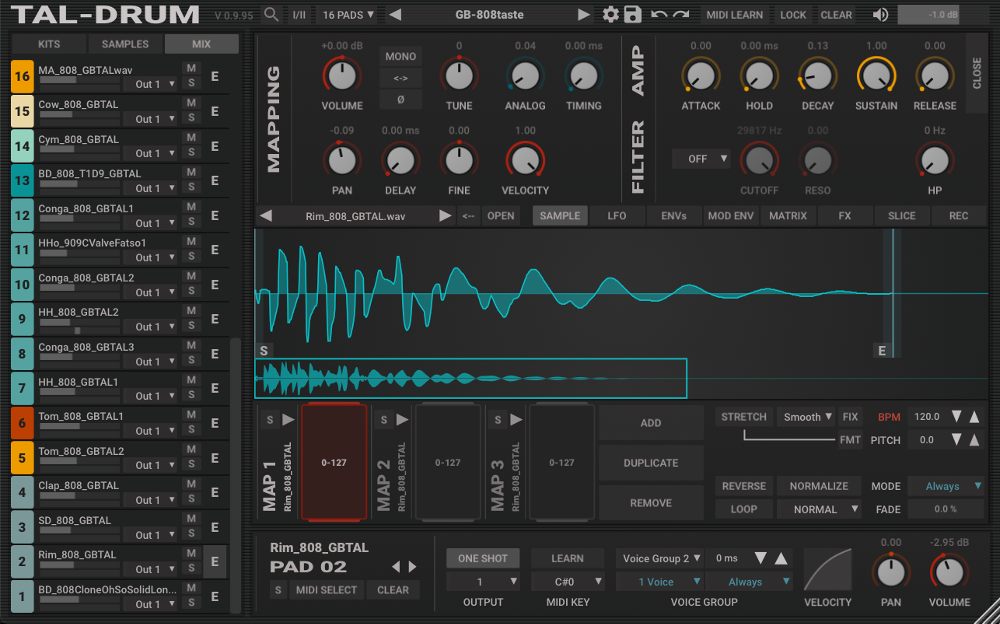
Roland SH-09
A somewhat stripped-down forerunner to the famous SH-101, the Roland SH-09 has a similar architecture and characteristic sound. It’s incredibly basic, but cuts right through a mix which made it ideal for Cabaret Voltaire’s simple approach to synthesis.
They acquired a couple of SH-09s over the years, the second of which they retrofitted with a Kenton MIDI kit just in time for the remix album.
If you’re looking to produce similar sounds, the SH-01A will do the trick and it also offers 4-voice polyphony and a 64-step pattern sequencer.

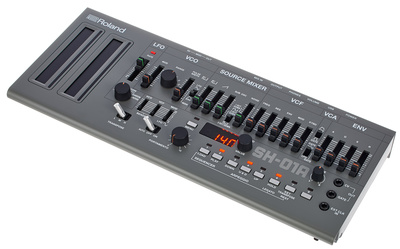
Fairlight CMI
First introduced in 1979, the Australian-born Fairlight CMI shook the industry with its versatility and incredible sound. At the time, this level of digital audio manipulation power was only available in the far more expensive Synclavier.
Although apprehensive at first, Cabaret Voltaire used the Fairlight on their sixth studio album, Micro-Phonies in 1984. Sampling has always been a core aspect of the CV sound, and this continued to manifest later through instruments like the E-mu EMAX and the AKAI S-1000.
Although using a real Fairlight in a modern workflow might seem somewhat impractical, you can get the sound and feel of the instrument within your DAW with the CMI V from Arturia.
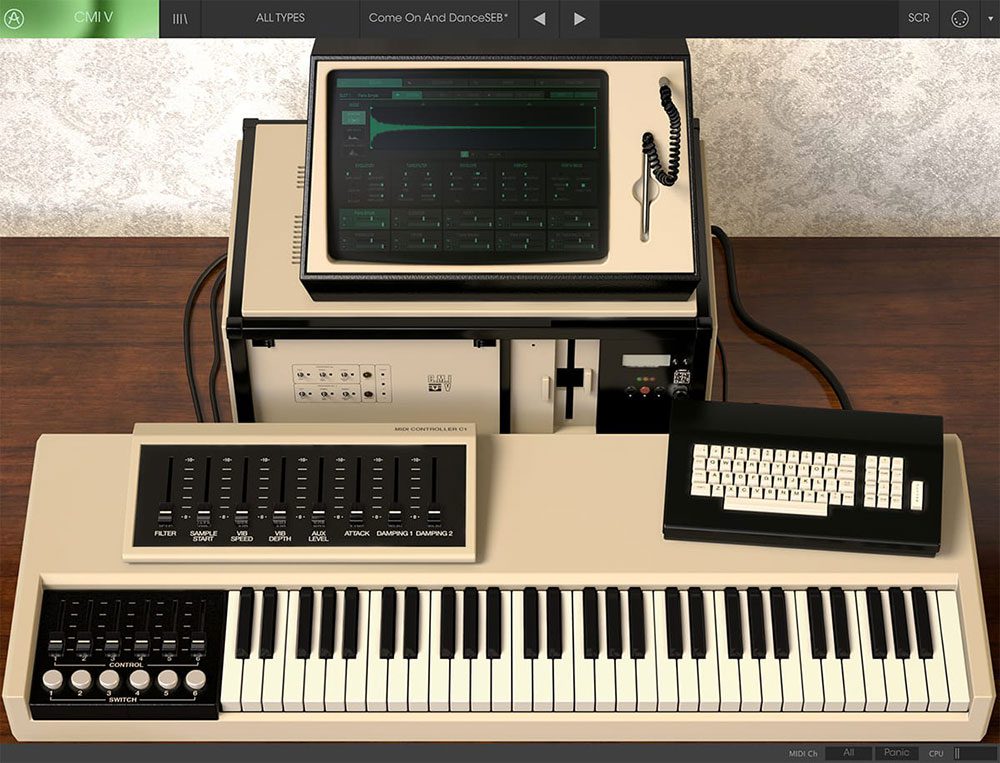
Yamaha DX7
Along with the Roland Alpha Juno 2, the Yamaha DX7 was used frequently by Cabaret Voltaire in studio as a synthesizer and controller keyboard. Originally launched in 1983, this 16-voice digital FM synth had an unprecedented impact on the music industry with its crystalline sound.
Although tedious to program, the DX7 was and still is reliable compared to vintage analogue keyboards of this era. For those versed in sound design, it’s still a tool that can be easily used today when you incorporate a software patch editor.
If you’re looking to get into FM synthesis, the Korg Volca FM2 offers an affordable way in with plenty of creative capabilities.

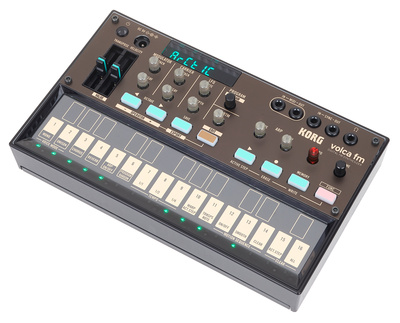
Which of your favourite artists would you like to see in this sound-alike series? Please let us know in the comments below!
More about Cabaret Voltaire:
Videos:
You are currently viewing a placeholder content from YouTube. To access the actual content, click the button below. Please note that doing so will share data with third-party providers.
You are currently viewing a placeholder content from YouTube. To access the actual content, click the button below. Please note that doing so will share data with third-party providers.
You are currently viewing a placeholder content from YouTube. To access the actual content, click the button below. Please note that doing so will share data with third-party providers.
Note: This article contains affiliate links that help us fund our site. Don’t worry: the price for you always stays the same! If you buy something through these links, we will receive a small commission. Thank you for your support!

 4,0 / 5,0 |
4,0 / 5,0 | 